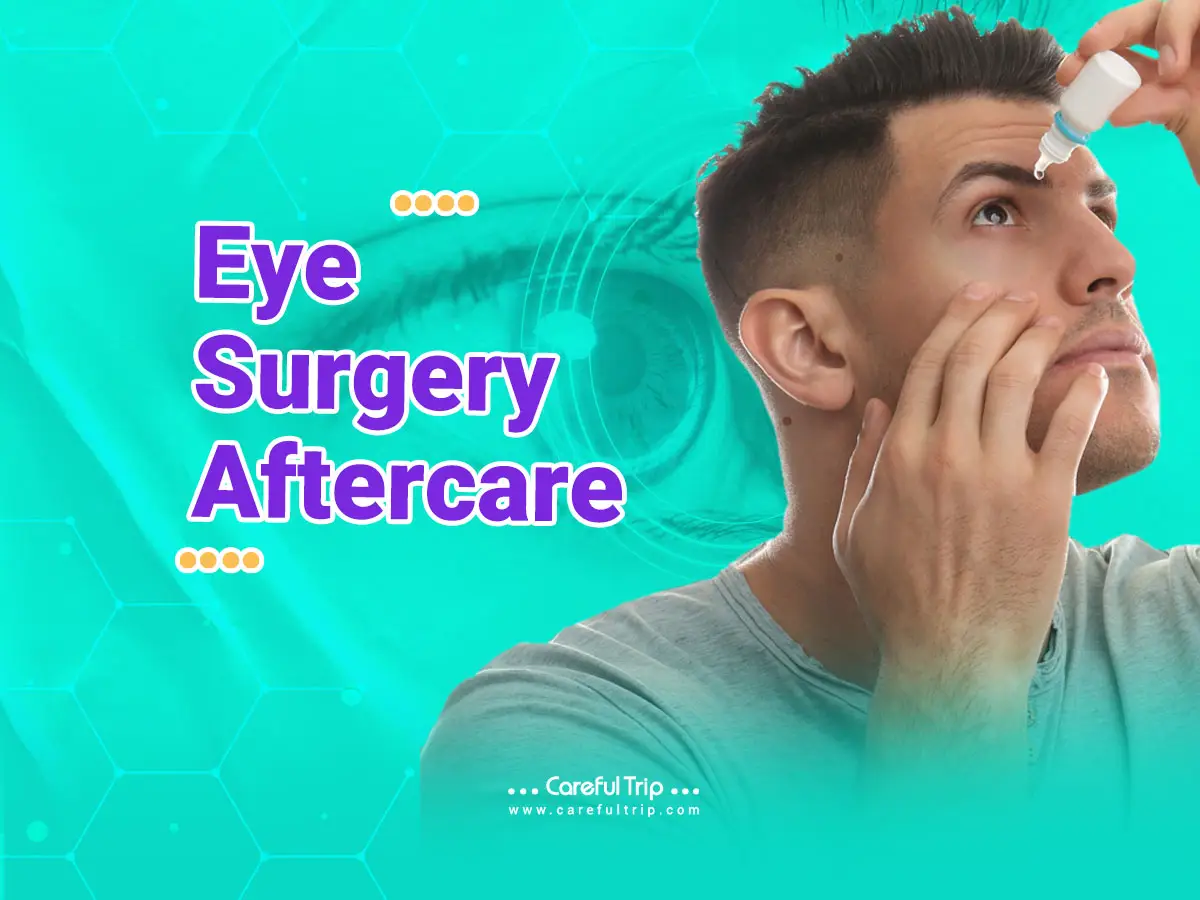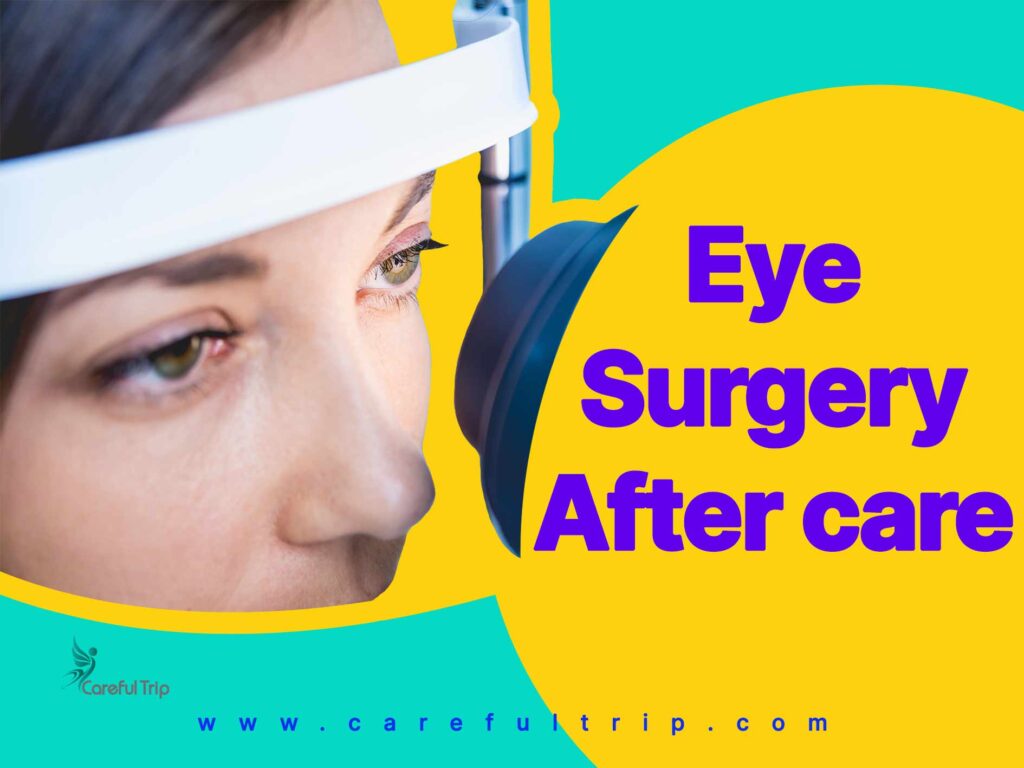
Eye surgery remains a critical procedure for treating various ocular conditions, from cataracts and refractive errors to glaucoma and other disorders. Millions of patients worldwide benefit from these procedures yearly, and Iran continues to be a top destination for medical tourists seeking expert care at competitive prices. While selecting a skilled surgeon and state-of-the-art facility is essential, proper postoperative care is equally critical to safeguarding vision and ensuring a smooth recovery.
Whether considering laser-assisted in situ keratomileusis (LASIK), cataract extraction with lens implantation, or other refractive procedures, thorough preoperative preparation and meticulous postoperative care are paramount. The sensitivity of the eye demands that every step—from the operating room to your home recovery—be managed with precision and care. Here, we take a look at the latest eye surgery aftercare guidelines, recovery tips, and insights into why Iran is a preferred destination for eye treatments in 2025.
For more information, read:
Eye Surgery Recovery: What to Expect
Patients can return home the same day for many modern eye surgeries due to refined surgical methods and improved anesthesia protocols. In the immediate recovery phase, you might notice:
- Temporary discomfort: Mild burning, irritation, or a sensation of numbness.
- Visual changes: Blurry or double vision, redness, or watery eyes.
- Gradual sensation return: Your eyes will slowly regain full sensation as healing progresses.
“When you come home from surgery, it’s natural to feel like something is in your eye, like an eyelash or particle of sand,” – John Hopkins Medicine.
While these symptoms are generally expected, contact your ophthalmologist immediately if you experience severe pain, sudden vision loss, or persistent symptoms that do not improve.
For more information, read:
Essential Eye Surgery Aftercare Guidelines
Postoperative care is just as critical as the surgery itself. To ensure a successful recovery, follow these updated guidelines closely:
What to Avoid
- Do Not Rub or Touch Your Eyes: Although your eyes may feel itchy or irritated, rubbing them can disrupt healing tissues and increase the risk of infection.
- Prevent Water and Shampoo from Contacting Your Eyes: Use a protective eye shield or goggles when showering. Keep soap, shampoo, and other chemicals away from your eyes to prevent irritation.
- Avoid Heavy Lifting and Strenuous Activity: Refrain from heavy lifting and vigorous exercise for at least 1–2 weeks (or as advised by your doctor) to prevent spikes in intraocular pressure that could compromise your healing.
- Skip Eye Makeup Until Advised: Refrain from applying eye makeup or using facial cosmetics near your eyes until your surgeon gives you the green light—often for 1–2 weeks post-surgery. However, this may vary depending on the procedure.
For more information, read:
What You Can Do
- Administer Prescribed Eye Drops: Use your eye drops exactly as directed by your healthcare provider. Always wash your hands before application, avoid touching the dropper tip to your eye, and never share your drops with others to minimize infection risk.
- Wear an Eye Shield During Sleep: Use an eye shield or protective goggles, especially at night, to prevent accidental rubbing or pressure on your healing eye. Some doctors may recommend protective eyewear during the day as well.
- Manage Discomfort with Pain Relievers: Take over-the-counter or prescribed pain medications as directed to control discomfort. Consult your doctor before using any new medications.
- Protect Your Eyes Outdoors: When stepping outside, wear sunglasses with UV protection to shield your eyes from harmful rays and environmental irritants, thereby supporting the healing process.

For more information, read:
How to Clean Your Operated Eye Safely
Proper hygiene is essential to prevent infection after eye surgery. Follow these updated cleaning instructions:
- Wash Your Hands Thoroughly: Begin by washing your hands with soap and water.
- Use a Sterile Saline Solution: Instead of regular tap or boiled water, use a sterile saline solution as recommended by your doctor.
- Gently Clean the Area: Moisten a sterile gauze pad or cotton ball with the saline solution and gently dab the area around your eye, starting from the inner corner and moving outward. Avoid applying direct pressure on the eye.
- Follow Your Doctor’s Schedule: Clean your eye as frequently as instructed by your healthcare provider, and do not deviate from their specific guidance.
For more information, read:
Eye Treatment in Iran: Why It’s a Top Choice in 2025
Choosing Iran for your eye treatment offers several compelling benefits:
- Expert Medical Professionals: Iran is home to highly experienced ophthalmologists and surgical teams who are well-versed in the latest eye care techniques.
- State-of-the-Art Facilities: Many hospitals and clinics in Iran feature advanced medical technology and adhere to international standards, ensuring high-quality care.
- Cost-Effective Treatments: Patients benefit from competitively priced procedures that do not compromise on quality, making eye surgery more accessible.
- Rich Cultural and Tourism Opportunities: Alongside world-class medical treatment, Iran’s rich history, cultural heritage, and scenic attractions provide a unique opportunity to combine medical care with tourism.
These factors make Iran an excellent destination for those seeking both exceptional medical care and an enriching travel experience.
For more information, read:
The Role of Medical Tourism Facilitators
Medical tourism facilitators such as CarefulTrip play a vital role in the overall experience of international patients seeking eye surgery in Iran. These agencies offer comprehensive services that include:
- Pre-Surgery Consultation: Guidance on selecting the right surgeon and clinic based on your specific needs.
- Travel Arrangements: Assistance with visas, flights, hotel accommodations, and local transportation.
- On-Ground Support: Multilingual coordinators who help navigate the medical system and cultural differences.
- Post-Operative Care: Coordination of follow-up appointments and rehabilitation services.
By managing these logistics, CarefulTrip ensures that patients can focus on their treatment and recovery, enjoying a smooth, hassle-free journey from consultation to complete healing.
For more information, read:
Final Words
Eye surgery is a delicate procedure that requires both expert surgical skills and a rigorous aftercare plan. Following your doctor’s postoperative instructions is crucial for preventing complications and achieving optimal healing. When choosing your medical destination, consider Iran for its blend of expert care, cutting-edge facilities, affordability, and rich cultural experiences.
Your eye health deserves the utmost attention—select a reputable surgeon and adhere to tailored aftercare protocols to ensure the best possible outcome. CarefulTrip is prepared to give you the best available care at the most affordable prices and deliver tailored services that are specific to your needs. Contact us today and make use of our free consultation.
Sources
- American Academy of Ophthalmology – Postoperative Eye Care Guidelines
- Mayo Clinic – Eye Surgery Recovery
- Iran Health Tourism News – Medical Tourism in Iran

For more information, read:
Eyes on Perfection: Advancements in Eye Surgery and Vision Correction
